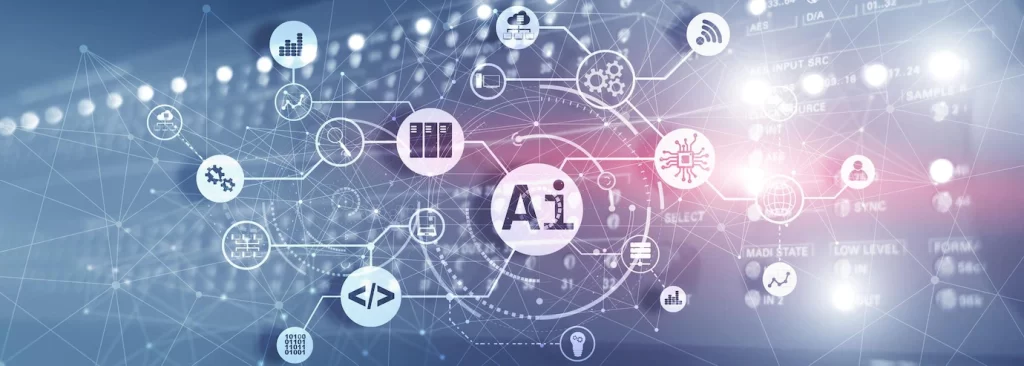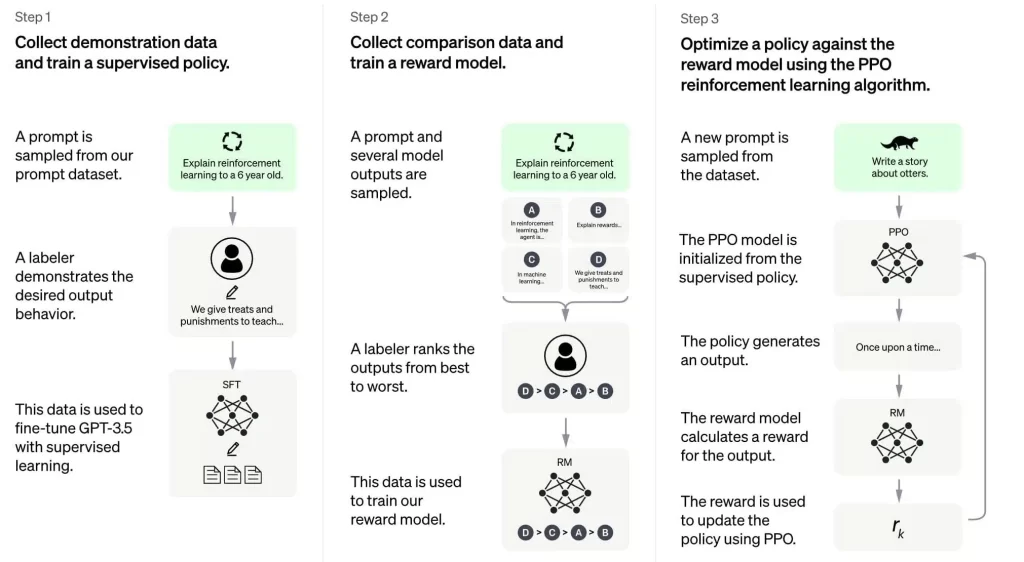One of the key features of ChatGPT is its ability to generate human-like text responses to prompts. This makes it useful for a wide range of applications, such as creating chatbots for customer service, generating answers to questions in online forums, or even creating personalized content for social media posts.
What is chat GPT?

It is a type of artificial intelligence that can understand and generate natural language text. It is trained on large amounts of text data and uses an algorithm called a transformer to learn how to generate text that is similar to human conversation.
How does chat GPT work?

As mentioned above, ChatGPT uses a transformer algorithm. This algorithm is based on a neural network, which is a type of computer program that is designed to mimic the way the human brain works. The transformer algorithm is able to analyze and understand large amounts of data, such as text, and use this understanding to generate text that is similar to human conversation.
ChatGPT allows us to explore possibilities that are beyond the constraints of our everyday reality, and that can be incredibly powerful.
Steps of Use ChatGPT:
- Open openai.com, Register an account, and log in (if you have an account, log in directly)
- Click ChatGPT on the bottom left
- Click Try it now at chat.openai.com.
- Enter the question you need to query in the input box at the bottom
Will It Help Assignments and Exams :
Yes, It discloses that chat GPT assists students to write assignments and pass exams. So it’s terrible for education institutes and students as well. So I can’t say what educational institutes bring an alternative to this in the future.
Limitations of ChatGPT
- ChatGPT sometimes writes plausible-sounding but incorrect or nonsensical answers. Fixing this issue is challenging, as: (1) during RL training, there’s currently no source of truth; (2) training the model to be more cautious causes it to decline questions that it can answer correctly; and (3) supervised training misleads the model because the ideal answer depends on what the model knows, rather than what the human demonstrator knows.
- ChatGPT is sensitive to tweaks to the input phrasing or attempting the same prompt multiple times. For example, given one phrasing of a question, the model can claim to not know the answer, but given a slight rephrase, can answer correctly.
- The model is often excessively verbose and overuses certain phrases, such as restating that it’s a language model trained by OpenAI. These issues arise from biases in the training data (trainers prefer longer answers that look more comprehensive) and well-known over-optimization issues.
- Ideally, the model would ask clarifying questions when the user provided an ambiguous query. Instead, our current models usually guess what the user intended.
- While we’ve made efforts to make the model refuse inappropriate requests, it will sometimes respond to harmful instructions or exhibit biased behavior. We’re using the Moderation API to warn or block certain types of unsafe content, but we expect it to have some false negatives and positives for now. We’re eager to collect user feedback to aid our ongoing work to improve this system.
About OpenAI and its Team
OpenAI is a non-profit artificial intelligence research company. Its goal is to advance digital intelligence in the way that is most likely to benefit humanity as a whole, unconstrained by a need to generate a financial return.
OpenAI believes Artificial Intelligence should be an extension of individual human wills and, in the spirit of liberty, as broadly and evenly distributed as possible. The outcome of this venture is uncertain and the work is difficult, but it believes the goal and the structure are right.
OpenAI’s research director is Ilya Sutskever, one of the world’s experts in machine learning. Its CTO is Greg Brockman, formerly the CTO of Stripe. The group’s other founding members are world-class research engineers and scientists: Trevor Blackwell, Vicki Cheung, Andrej Karpathy, Durk Kingma, John Schulman, Pamela Vagata, and Wojciech Zaremba. Pieter Abbeel, Yoshua Bengio, Alan Kay, Sergey Levine, and Vishal Sikka are advisors to the group. OpenAI’s co-chairs are Sam Altman and Elon Musk.
